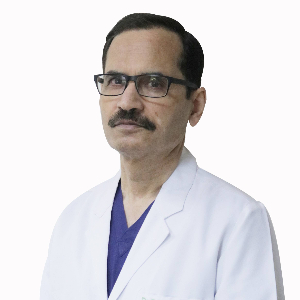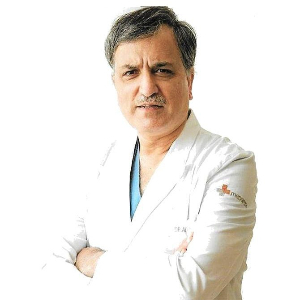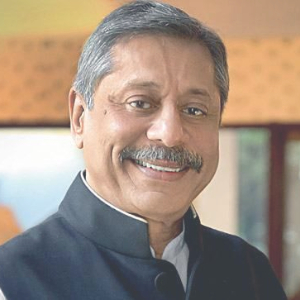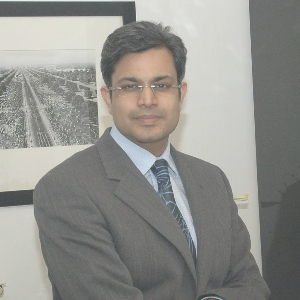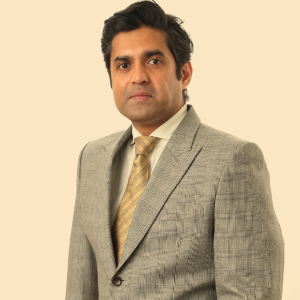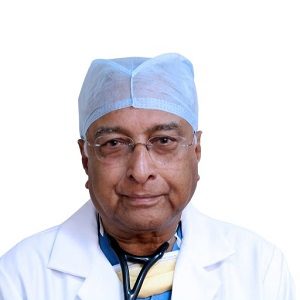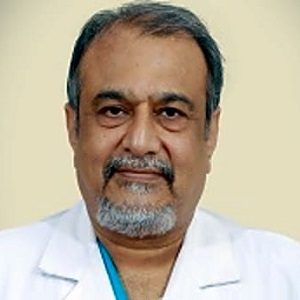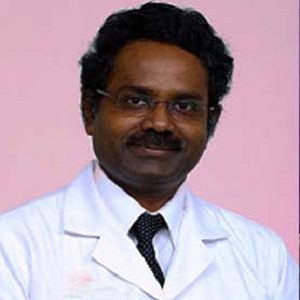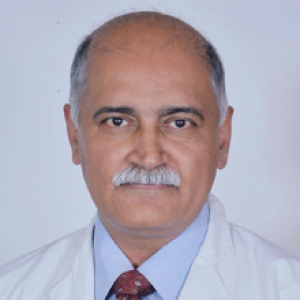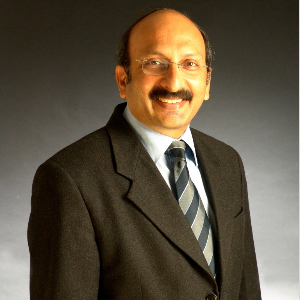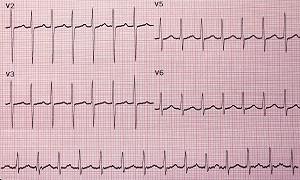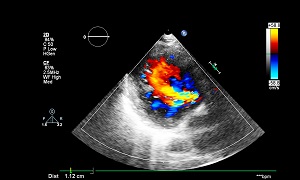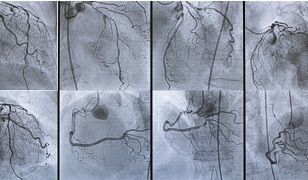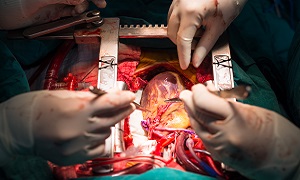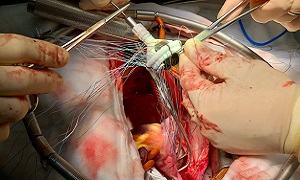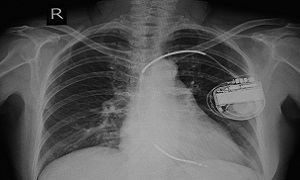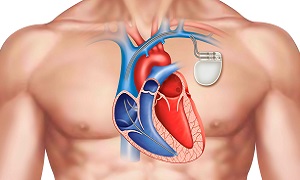Best Doctors in India for Congestive Heart Failure treatment
- Cardiac Surgeon, New Delhi, India
- Over 30 years’ experience
Profile Highlights:
- Dr. Z S Meharwal is a well-known cardiac surgeon in India who has performed over 20,000 cardiac surgeries, including some of the most complex and high-risk cardiac procedures.
- Dr. Meharwal is a member of the founding team that started the Fortis Escorts Heart Institute and has been associated with the hospital since then.
- His interest lies in Minimally Invasive Cardiac procedures, valve repair, and replacement, and heart transplants among other major vascular and thoracic surgeries.
- Cardio Thoracic & Vascular Surgeon, Gurugram, India
- Over 35 years’ experience
Profile Highlights:
- Dr. Anil Bhan is an excellent Cardiovascular and thoracic surgeon who has performed more than 15,000 cardiac and vascular surgeries that include heart transplant surgery, aortic aneurysm surgery, pediatric cardiac surgery, valve repairs, and peripheral vascular surgery among several others.
- He is one of the best pediatric cardiac surgeons in Delhi/ NCR and is credited with performing heart bypass surgery on the youngest patient in India in 2007 (18 months).
- He performed the first extracorporeal membrane oxygenation and was the first to use a harmonic scalpel for harvesting radial mammary artery conduits in India in 2000 and 1995 respectively.
- Cardiac Surgeon, Gurugram, India
- Over 40 years’ experience
Profile Highlights:
- Dr. Naresh Trehan is one of the most highly skilled and globally recognized cardiothoracic and vascular surgeons.
- He started his career as a Cardiac Surgeon at New York University Medical Centre where he performed over 3000 coronary artery surgeries and returned to India in 1988 and founded the Escorts Heart Institute and Research Center in New Delhi.
- Dr. Trehan is the Founder Chairman of Medanta- The Medicity in Gurugram, a premier multi-specialty hospital with state-of-the-art infrastructure and equipped with the latest and advanced technologies.
- Cardio Thoracic & Vascular Surgeon, New Delhi, India
- Over 16 years’ experience
Profile Highlights:
- Dr. Mukesh Goel is a reputed Cardio-Thoracic and Vascular surgeon serving as a Senior Consultant of the specialty at Indraprastha Apollo Hospital, New Delhi.
- He carries an experience of 16+ years and has performed more than 3000 different cardiac surgeries. Dr. Mukesh Goel is constantly on the lookout to develop new and innovative techniques to perform cardiac procedures that help in quick recovery with minimum incisions.
- His expertise lies in on and off-pump bypass surgeries and also finds interest in beating heart bypass surgery, open-heart surgery, minimally invasive heart valve surgery, and pediatric cardiac surgery among several others.
- Dr. Mukesh Goel received his training in CTVS from one of the most renowned cardiac surgeons in India, Dr. Naresh Trehan, and has been using the exposure to perform various advanced and complex heart surgeries.
- Before joining Indraprastha, Dr. Goel has been associated with other prestigious heart centers in India like Escorts Heart Institute, Apollo Hospital in New Delhi, and Medanta in Gurugram where he helped in starting the Heart surgery unit.
- He frequently gets invited to attend cardiology conferences and seminars to deliver lectures and present papers. He also regularly takes part in workshops and CMEs for cardiac surgeries.
- Dr. Mukesh Goel is a keen researcher and has published a number of papers and articles on CTVS in renowned national and international medical journals.
- Heart & Lung transplant Surgeon, Hyderabad, India
- Over 20 years’ experience
Profile Highlights:
- Dr. Sandeep Attawar is a highly recognized Heart and Lung transplant surgeon in India who has over 2 decades of experience as a cardiac surgeon and has performed more than 10,000 cardiac surgeries on adult and pediatric patients.
- Dr. Attawar specializes in all types of surgeries for adults as well as pediatric heart patients and finds interest in heart and lung transplant surgery, congenital heart surgery, Aortic aneurysm repair, and implantation of heart failure devices.
- Cardiac Surgeon, Cardiothoracic Surgeon, Vascular Surgeon; Chennai, India
- Over 45 years’ experience
Profile Highlights:
- Padma Bhushan awardee Dr. Girinath M R is a senior cardio-thoracic Surgeon in Chennai having experience of more than 45 years in Cardiac Surgery.
- Dr. M R Girinath was a fellow of Coronary Artery Surgery and Congenital Heart Surgery at the University of Wisconsin, USA.
- He provides consultation and diagnostic services for Mitral/Heart Valve Replacement, Cardiac Pacing, Invasive Cardiology, ABPM, Balloon Mitral Valvuloplasty, CT Angiography, etc.
- Cardiac Surgeon, Cardiothoracic Surgeon, Vascular Surgeon; Chennai, India
- Over 37 years’ experience
Profile Highlights:
- LF Sridhar is a well-known Cardiothoracic & Vascular Surgeon in Chennai, now working at Apollo Hospital in Greams Road, Chennai, and has an experience of 37 years in this arena.
- Some of the services available with the doctor are Mitral/Heart Valve Replacement, Cardiac Pacing, and Intra – Arterial Thrombolysis, Pacemaker Implantation, and bypass surgery besides the regular OPD procedures.
- Cardiac Surgeon, Cardiothoracic Surgeon, Vascular Surgeon, Chennai, India
- Over 25 years’ experience
Profile Highlights:
- Dr. K Madhan Kumar is a well-known Cardiac Surgeon in Tamil Nadu, having many years of experience in the domain.
- His experience came from practice and teaching. These days, he is associated with Apollo Hospital Greams Road in Chennai as a Senior Consultant Cardiothoracic & Transplant Surgeon.
- Dr. Kumar has also completed Fellowships in Cardiothoracic Surgery at SGH in London as well as ECMO, VAD, and transplantation at HH in London.
- Cardiac Surgeon, New Delhi, India
- Over 29 years’ experience
Profile Highlights:
- Dr. Kulbhushan Singh Dagar, a pioneer and an expert in the cardiology field earned his reputation through his exceptional performance in the field of complex congenital heart defects, especially for newborns.
- With over 29 years of experience, Dr. Dagar has dedicatedly performed complex surgical procedures by implementing innovative techniques and cutting-edge technologies in his procedures and is currently considered an asset to the cardiac industry, not just nationally, but internationally too!
- Interventional Cardiologist, Gurugram, India
- Over 30 years’ experience
Profile Highlights:
- Dr. Praveen Chandra is one of the most well-known and respected Interventional Cardiologists in India and performs over 5000 percutaneous and diagnostic interventions every year.
- He specializes in devising techniques that help minimize open surgeries. Dr. Praveen Chandra performed the first Percutaneous Aortic Valve implantation without surgery in India.
- He also developed techniques to reduce the number of patients requiring bypass surgeries and has been trying to make angioplasty techniques more accurate to help with the treatment of multiple blocked arteries.
Best Hospitals in India for Congestive Heart Failure treatment
Indraprastha Apollo Hospital, New Delhi
- City: New Delhi, India
Hospital Highlights:
- Indraprastha Apollo Hospital is a 700-bedded multispecialty hospital in the heart of the capital of India. It is a part of Apollo Hospital group, one of India’s most reputed healthcare chains. Indraprastha Apollo Hospital has been accredited by Joint Commission International, making it the first internationally accredited hospital in the country in 2005.
- There are 52 specialties in the hospital with one of the best cardiology centers in the country. The hospital is also equipped with State of the art infrastructure facilities with the largest Sleep Lab in Asia and the largest number of ICU bed facilities in India.
- The hospital also has one of the largest dialysis units in India along with a dedicated Bone Marrow Transplant unit.
- The latest and highly advanced technologies that are installed in the hospital include Da Vinci Robotic Surgery System, PET-MR, PET-CT, Cobalt-based HDR Brachytherapy, Brain Lab Navigation System, Tilting MRI, Portable CT scanner, 3 Tesla MRI, 128 Slice CT scanner, DSA Lab, Endosonography, Hyperbaric Chamber and Fibro scan.
Fortis Memorial Research Institute, Gurugram
- City: Gurugram, India
Hospital Highlights:
- Fortis Memorial Research Institute is a multi-super-specialty, quaternary care hospital with 1000 beds. The hospital comprises reputed clinicians, and international faculty and is also equipped with cutting-edge technology. The hospital is a part of Fortis Healthcare Limited, a reputed chain of private hospitals in India.
- It is a NABH-accredited hospital that is spread across 11 acres of land and has a capacity of 1000 beds. The hospital has 55 specialties and is one of the premier health care centers in the Asia Pacific region popularly known as “the Mecca of Healthcare”.
- The hospital has 260 diagnostic centers and is also equipped with the latest and advanced techniques that include 3 Telsa which is the world’s first Digital MRI technology. The hospital also has world-class Radiation Therapy techniques which have been developed by leading technology experts from Elekta and Brain Lab.
Apollo Hospital, Chennai
- City: Chennai, India
Hospital Highlights:
- Apollo Hospitals, Chennai, is one of the best hospitals for heart care in India. Over the years, Apollo has expanded all over India, as a healthcare chain.
- India’s first ‘Only Pancreas’ transplant was performed in Apollo Hospital. The hospital is known for successfully performing Asia’s first en-bloc combined heart and liver transplant, and over the years, it has attained a remarkable achievement in the global healthcare space. Around 3-4 organ transplants are performed in the hospital per day.
- Equipped with over 500 beds, this hospital in Chennai was established in 1983 and since then has been among the most preferred hospital for patients from all over the world.
- The hospital holds accreditation of the NABH and JCI and is the first hospital in India to be ISO 9001 and ISO 14001 certified. It is also the first South Indian Hospital to receive subsequent reaccreditation from the JCI USA 4 times.
Medanta-The Medicity, Gurgaon
- City: Gurugram, India
Hospital Highlights:
- One of India’s best and largest multi-specialty hospitals, Medanta was built with the aim to bring India to the highest standards of medical care. The hospital has been providing the best medical services to its patients, since its inception, with care, commitment, and compassion.
- Equipped with 1250 beds, the hospital was founded by Dr. Naresh Trehan in the year 2009 with an aim to provide the best medical care at affordable costs. The hospital is spread across 43 acres and includes 45 operation theatres and 350 beds dedicated solely to ICU. The hospital includes over 800 doctors, and more than 22 specialty departments and has a dedicated floor for individual specialty in order to offer the best services under one roof.
- The hospital is considered one of the premier institutes in India for Cardiac Care and includes staffs and members of high caliber. The hospital has 6 distinct centers of excellence.
Max Super Specialty Hospital, New Delhi
- City: New Delhi, India
Hospital Highlights:
- One of the well-regarded providers in India committed to the highest standards of clinical excellence and patient care, Max Super Specialty Hospital is a part of Max Healthcare, which is the second-largest healthcare chain in India. Regarded as one of the most well-regarded healthcare providers in the country, Max Super Specialty Hospital is committed to the highest standards of clinical excellence as well as patient care. The hospital is also equipped with the latest technology as well as cutting-edge research. The hospital is known to deliver and ensure the highest level of patient care.
- The hospital has more than 500 beds and offers treatment for over 35 specialties. The hospital also holds the credit of having installed the first Brain Suite in Asia. This is a highly advanced Neurosurgical machine that allows MRI to be taken while surgery is ongoing.
- Other advanced and latest technologies are also installed in the hospital such as the 1.5 Tesla MRI machine, 64 Slice CT Angiography, 4D ECHO, LINAC, and 3.5T MRI machine.
Artemis Hospital, Gurugram
- City: Gurugram, India
Hospital Highlights:
- One of the most well-known hospitals in the Delhi NCR, Artemis Hospital is the first hospital in Gurugram to get accredited by the Joint Commission International.
- With more than 40 specialties, the hospital has been designed to be one of the most technically advanced hospitals in the country, with the best medical and surgical health care. The hospital has eleven special and dedicated centers, for Heart, Cancer, Neurosciences, etc.
- The latest technologies in the hospital include Endovascular Hybrid Operating Suite and Flat panel Cath Labs for the cardiovascular department, 3 Tesla MRI, 16 slice PET CT, 64 Slice Cardiac CT Scan, HDR Brachytherapy, and highly advanced Image Guided Radiation Therapy techniques (LINAC) are installed in the hospital.
- The hospital has won several awards as well, since its inception.
BLK Max Super Specialty Hospital, New Delhi
- City: New Delhi, India
Hospital Highlights:
- Equipped with 650 beds, BLK Superspecialty Hospital is the largest stand-alone private sector hospital in Delhi.
- With over 1500 healthcare providers and 150 globally renowned super specialists, the hospital is one of Asia’s largest Bone Marrow Transplant Centres. The hospital is known for having some of the best cancer doctors in the country.
- The hospital is NABH and NABL accredited and was inaugurated by the first Prime Minister of India. Pt. Jawahar Lal Nehru.
Gleneagles Global Hospitals, Chennai
- City: Chennai, India
Hospital Highlights:
- Established in 1999, Gleneagles Global Hospital, Chennai, is one of the top healthcare facilities in Southern India. It is part of the Gleneagles Hospital Chain, which is the fourth largest healthcare chain in the country. The hospital specializes in multi-organ transplants of kidneys, liver, lungs, heart, etc.
- The hospital has an excellent infrastructure and state-of-the-art lab and equipment set-up. The hospital boasts cutting-edge technologies, a highly skilled team of doctors and surgeons, and trained support staff. Located in Perumbakam, Chennai, it is one of India’s premier health care destinations. The hospital has performed some of the most complex surgical and clinical procedures in India including multi-organ transplantations.
- The hospital’s lung transplantation program is one of the best in the country. The hospital is known for having performed India’s first single lung transplant and first minimal invasive lung transplant. It is also the only Indian hospital to be associated with King’s College Hospital, London, United Kingdom for liver transplantations.
Fortis Hospital, Mulund, Mumbai
- City: Mumbai, India
Hospital Highlights:
- Fortis Hospital in Mulund is a 315-bed multi-speciality tertiary care hospital with five JCI accreditations that offers a wide variety of diagnostic and therapeutic services. The Fortis Hospital in Mulund delivers patient-centred treatment with cutting-edge technology, highly skilled and experienced surgeons, and paramedical staff.
- This institution houses Maharashtra’s largest multi-organ transplant centre. It is also the first heart transplant centre in western India to conduct 100 or more consecutive heart transplants in under four years. It is the only hospital in the city to have multi-organ transplants and has handled the youngest patient for angioplasty. Fortis Hospital Mulund now boasts the first advanced surgical robot in central Mumbai.
- Cardiology and heart surgery, urology, nephrology, neurosciences, orthopaedics, digestive care, emergency and critical care, and maternity care are among the services provided by the hospital.
Kokilaben Dhirubhai Ambani Hospital, Mumbai
- City: Mumbai, India
Hospital Highlights:
- Kokilaben Dhirubhai Ambani Hospital, Named after the wife of Indian industrialist Dhirubhai Ambani, the founder of Reliance Industries, this is one of the top hospitals in Mumbai. This 750-bed multi-specialty hospital became operational in 2009. Known as one of India’s most advanced tertiary care facilities, the hospital is designed to raise India’s global standing as a healthcare hub, with an emphasis on excellence in clinical services.
- Kokilaben Dhirubhai Ambani Hospital uses Protocol and Care Pathway based treatment models to ensure the best outcomes for patients.
- The hospital represents a confluence of top-notch talent, cutting-edge technology, state-of-the-art infrastructure, and, most importantly commitment.
- The hospital also holds the accreditation of the NABH, NABL, CAP, and JCI.
- The hospital has been recognized as the No. 1 Multispecialty Hospital in Mumbai and the West Zone for the fifth year in a row in 2020 by The Week.
Congestive Heart Failure
Congestive heart failure is a progressive condition affecting the pumping of blood. It occurs when the muscles of your heart fail to pump blood efficiently. This is mainly because of certain conditions like coronary artery disease (narrowing of arteries in your heart) and high blood pressure that weaken your heart. This results in inefficient filling of blood in your heart and pumping further.
Types of Heart Failure
- Left-sided Heart Failure – There is shortness of breath as the fluid backs up in the lungs.
- Right-sided Heart Failure – There is swelling because the fluid backs up into the legs, feet, and abdomen.
- Systolic Heart Failure – There is a pumping problem as the left ventricle cannot contract vigorously.
- Diastolic Heart Failure – Also known as heart failure with preserved ejection fraction, the left ventricle cannot fill fully or relax fully in this condition. This indicates a filling problem.
Causes of Congestive Heart Failure
When other conditions damage or weaken your heart, you may experience Heart Failure. This can also occur due to the stiffness of the heart. The ventricles (main pumping chambers of your heart) become stiff and don’t fill properly between the beats causing heart failure. In some cases of Heart Failure, there are weakened and damaged heart muscles. Due to this, the ventricles dilate (stretch) up to a point that the heart fails to pump blood efficiently throughout your body.
With the passage of time, the heart fails to fulfil the demands of pumping blood to the entire body. An ejection fraction helps to determine the pumping capacity of your heart while helping to identify Heart Failure for appropriate treatment. If the heart muscle becomes stiff due to high blood pressure, it may result in Heart Failure.
- High Blood Pressure or Hypertension- If you are suffering from hypertension, then your heart needs to work strenuously for circulating the blood throughout the body. This makes the heart muscles either stiff or weak for efficient pumping of blood.
- Cardiomyopathy- Also called the heart muscle damage, it has causes like infections, the toxic effect of drugs, diseases, alcohol abuse, and genetic factors.
- Coronary artery disease- It is a common form of heart disease and a common cause of heart failure. It occurs due to the buildup of plaque (fatty deposits) in your arteries. This reduces the flow of the blood causing heart attack.
- Congenital heart defects- These are the heart defects you are born with. If the chambers and valves of your heart don’t form correctly, the heart needs to work harder for pumping blood. This may cause Heart Failure.
- Faulty heart valves- The valves of the heart maintain the blood flow in a proper direction through your heart. Coronary artery disease, heart defects, or heart infection may damage the valve of your heart. This again forces your heart to work strenuously and weaken it with the passage of time.
- Heart arrhythmia– Also called the abnormal heart rhythm, it causes faster beating of your heart and creates extra work for it. However, Heart Failure may also take place due to slow heartbeats.
- Myocarditis- It is an inflammation of the muscles of the heart. Most of the viruses cause myocarditis which ultimately leads to left-sided Heart Failure.
- Other diseases- Chronic diseases like HIV, hypothyroidism, diabetes, hemochromatosis (buildup of iron), hyperthyroidism or amyloidosis (buildup of protein) may cause Heart Failure.
Symptoms of Congestive Heart Failure
- Edema (or swelling) in your legs, feet, and ankles
- Ascites or swelling of your abdomen
- Dyspnea or shortness of breath upon lying down or normally
- Reduced ability to exercise
- Nausea
- Weakness
- Persistent coughing or wheezing with blood-tinged phlegm
- Lack of appetite
- Fatigue
- Decreased alertness or difficulty in concentrating
- Irregular or rapid heartbeat
- Coughing up foamy, pink mucus
- Chest pain
- Increased urination during the night time
- Sudden and severe shortness of breath
Diagnosis of Congestive Heart Failure
Your doctor will note down a careful medical history, perform a physical examination, and review your symptoms to diagnose Heart Failure. Your doctor might check for risk factors like diabetes, blood pressure, and coronary artery disease. He or she might check for congestion in the lungs with the help of a stethoscope. This also helps in detecting abnormal heart sounds indicating Heart Failure. He or she will also check for fluid buildup in your legs and abdomen.
Blood tests
Electrocardiogram
Chest X-ray
Echocardiogram
Stress test
Stress test measures your heart’s health by evaluating the response of the heart to exertion. Your doctor might ask you to walk on a treadmill while an ECG machine is attached. Sometimes, the test is done wearing a mask that measures the ability of your lungs and heart to take in oxygen while breathing out carbon dioxide. Your doctor might use imaging techniques to visualize the heart while the test is on.
Magnetic Resonance Imaging
Computerized Tomography Scan
Myocardial Biopsy
Coronary Angiogram
Treatment options for Congestive Heart Failure
Medications
- Angiotensin-converting enzyme inhibitors: ACE inhibitors help people with systolic Heart Failure feel better. They are vasodilators and widen the blood vessels to reduce blood pressure. This improves the blood flow and decreases the workload on the heart.
- Angiotensin II receptor blockers: They have benefits similar to the ACE inhibitors and are an alternative for the people who can’t tolerate ACE inhibitors.
- Beta-blockers: These drugs slow down the heart rate and reduce blood pressure. This helps in limiting or reversing the damage to your heart if you have systolic Heart Failure. They reduce the risk of abnormal heart rhythms and improve heart function.
- Diuretics: These drugs make you urinate frequently and prevent the collection of fluids in your body. They also decrease fluid in the lungs for better breathing.
- Aldosterone antagonists: They help people with systolic Heart Failure to live longer.
- Inotropes: Your doctor will prescribe these drugs if you had severe Heart Failure to improve the pumping function of the heart and maintain the blood pressure.
Surgery and medical devices
Coronary bypass surgery
Heart valve repair
Implantable cardioverter-defibrillators
Cardiac Resynchronization Therapy
Palliative care


